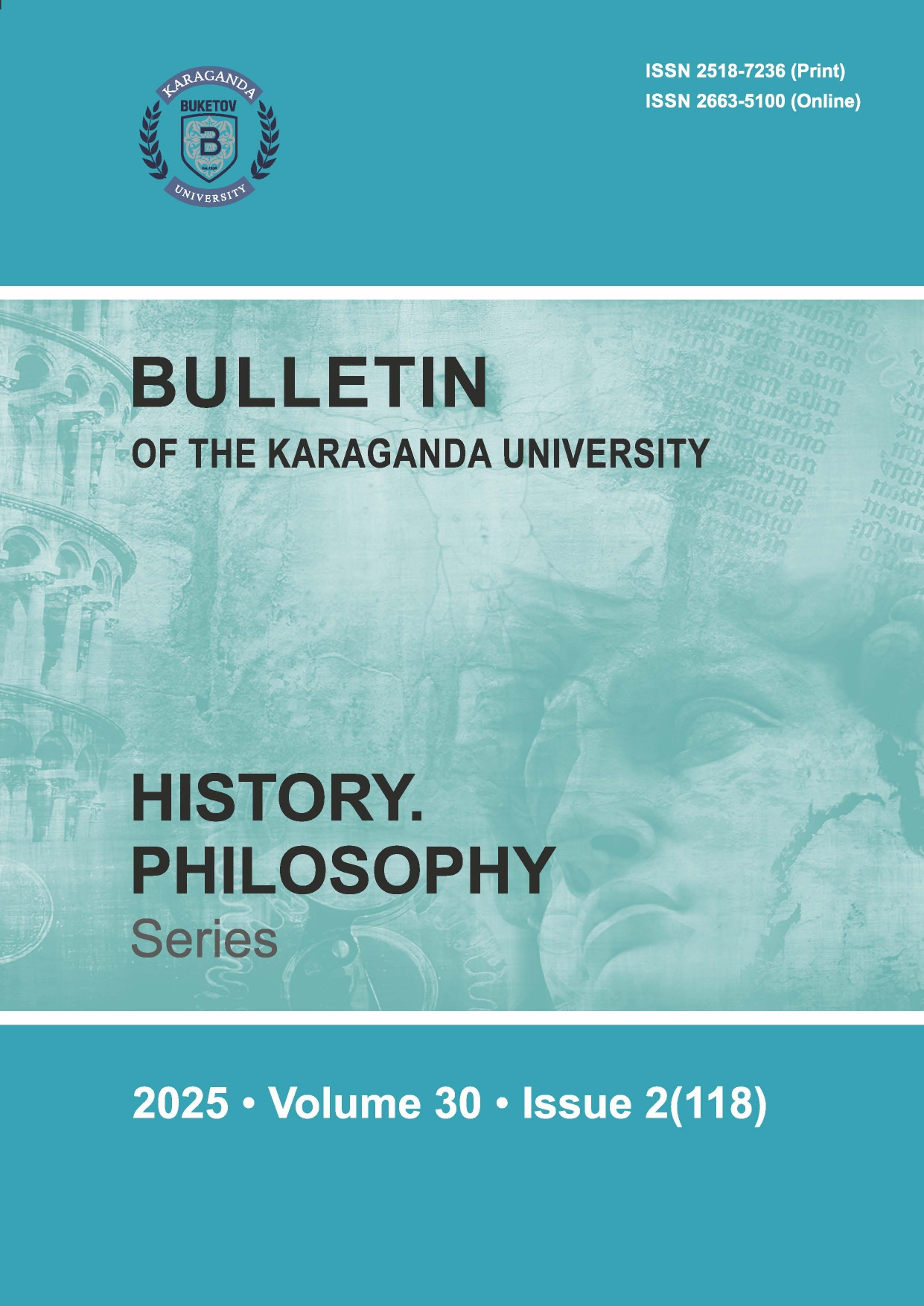The Civic Identity of Graduates (11th Grade Students) of Secondary Schools at the Current Historical Stage of Kazakhstan’s Development: the Results of a Quantitative Study
DOI:
https://doi.org/10.31489/2025hph2/181-194Keywords:
civic identity, patriotism, students, Republic of Kazakhstan, ethnocentrism, civic nation, regional differences, state policy, modern history, history of KazakhstanAbstract
This article presents the results of a quantitative study on the civic identity of high school students in Kazakhstan. The analysis is based on survey data collected from final-year students across schools in all regions of the country, conducted in both Kazakh and Russian languages. The study explores how high school students perceive their civic identity and highlights differences influenced by the language of instruction and regional contexts. The findings reveal that the majority of students endorse the concept of a civic nation. It becomes
evident that students’ civic and patriotic attitudes are shaped by their linguistic environment, social engagement, and educational policies. The authors argue that state policies regarding civic education should take into account the socio-cultural and linguistic characteristics of different regions, address existing language barriers, and actively involve Russian-speaking youth in civic socialization processes. Furthermore, the study underscores the crucial role of educational institutions in fostering civic identity and advocates for the integration
of intercultural interaction into school curricula and student activities. The results are valuable for educational institutions, regional policymakers, and specialists in contemporary Kazakhstan history and regional studies.




